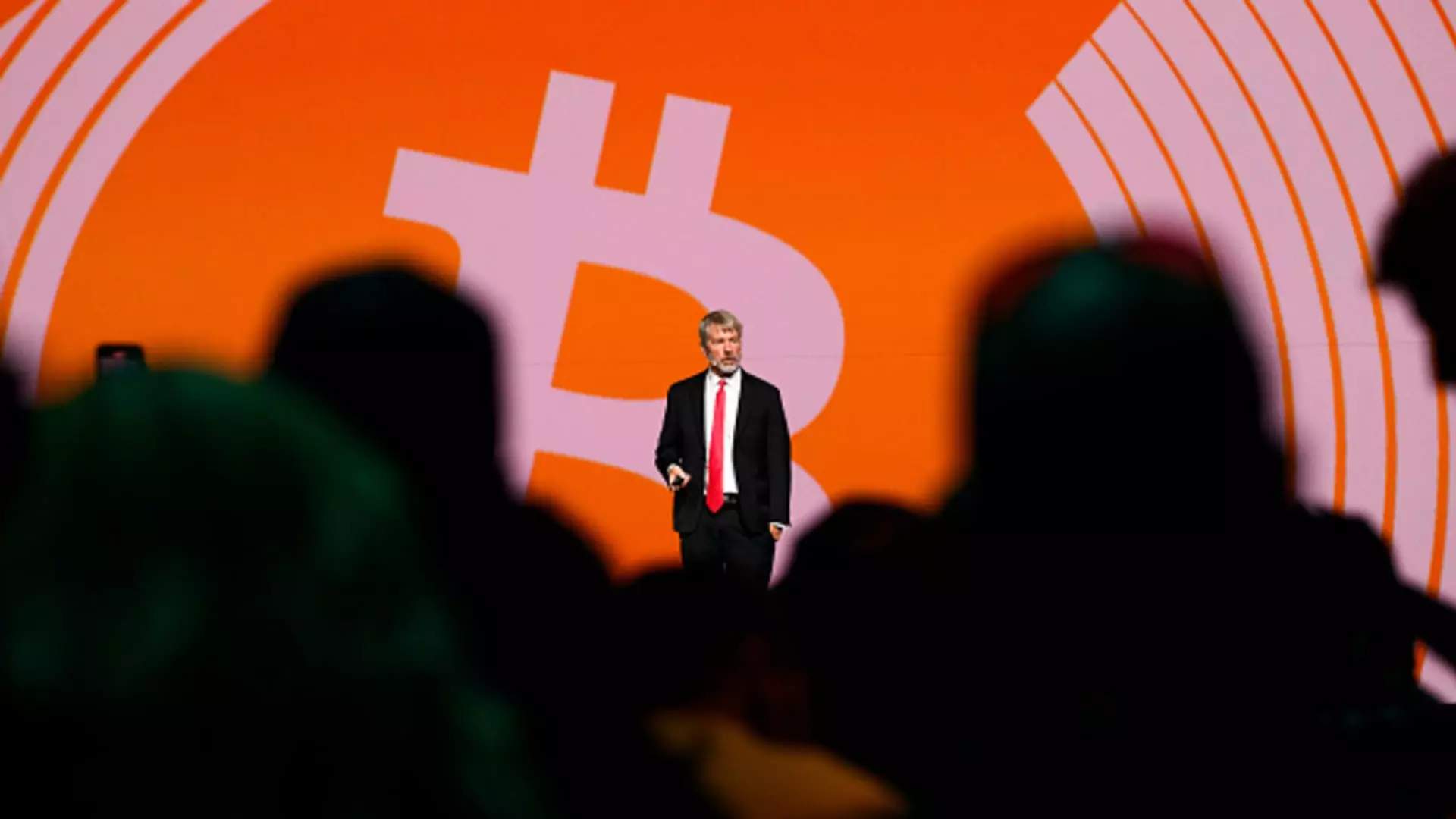In a significant twist that showcases the volatile terrain of modern finance, the burgeoning trend of corporations adopting Bitcoin as part of their treasury strategies has surged to the forefront of the investment narrative. Following in the footsteps of Strategy—formerly known as MicroStrategy, which has seen its market valuation skyrocket beyond $80 billion—companies like Trump Media and GameStop are now attempting to ride the Bitcoin wave. However, despite the hype, skepticism looms large on Wall Street. This recent wave of announcements may appear ambitious, but the financial markets seem to be signaling a cautious stance concerning the longevity and sustainability of these initiatives.
Trump Media’s desire to raise $2.5 billion for Bitcoin purchases and GameStop’s $500 million allocation illustrate the enormous interest in the cryptocurrency. Yet, their stock prices have taken substantial hits, with Trump Media recently suffering a 20% drop and GameStop a nearly 17% decline. It begs the question: are these corporations prepared to endure the inevitable fluctuations that accompany digital currency investment? Bitcoin’s price volatility makes it a high-risk asset, and as these companies face market backlash, it shows that enthusiasm alone may not be enough to convince investors of this strategy’s validity.
Comparative Assessments: Strategy’s Dominance
The stark contrast between Strategy’s remarkable success and the tepid market reaction to other companies trying to mimic its treasury strategy cannot be overlooked. Since the end of 2022, Strategy has multiplied its investments considerably, now holding a Bitcoin stake worth over $60 billion. In the words of Strategy’s Chairman Michael Saylor, some companies may need to “buy more Bitcoin” to satiate market expectations. This begs a critical reflection on whether the mere announcement of buying Bitcoin is sufficient to elicit investor confidence. Saylor emphasizes that adopting Bitcoin can act as a “courageous” financial move but highlights that the perception of the market is dictated by substantive actions rather than statements.
Among the market reactions, one cannot ignore that attention must be paid to the structural dynamics influencing these organizations amid a shifting corporate landscape. Enthusiasm for Bitcoin could easily evaporate if acquisitions are perceived as financially frivolous or short-sighted. Saylor’s interconnected comments suggest that the market’s response can often hinge on the broader context of the investment rather than the value proposition of Bitcoin itself.
The Shift in Political Climate: A Green Light for Bitcoin
Under the previous Biden administration, corporate adoption of Bitcoin was viewed through a lens of caution, leading to regulatory scrutiny. However, the political tides have shifted dramatically with former President Trump’s recent executive order establishing a U.S. Strategic Bitcoin Reserve. This order repositions Bitcoin as a long-term store of value, replete with implications that resonate through corporate America and beyond. It symbolizes a newfound political acceptance of integrating Bitcoin within the portfolio of national assets, a move that could instigate ripple effects across various sectors.
The purported benefits for the average consumer could potentially be profound. As Vice President JD Vance increasingly positions crypto as a hedge against inflation and governmental control, a narrative of fiscal resilience is taking shape. By extolling the virtues of Bitcoin as a means against “censorship” and overreach by “unelected bureaucrats,” the political allegiance towards this digital asset is likely to galvanize greater corporate adoption. This discernible shift indicates that the integration of Bitcoin into national strategy is more than conducive; it may be essential for global competitiveness in the digital age.
Resistance and Critique within Corporate America
However, it’s essential to recognize that not all corporate entities are onboard with Bitcoin’s inclusion in their asset portfolios. Last year’s rejection of a proposal by Microsoft shareholders to invest part of their substantial cash reserves in Bitcoin speaks volumes about lingering hesitations among established corporations. While Saylor rightfully argues that companies cannot afford to miss the next “technology wave,” the outlook is not universally positive. The hesitance of major players like Microsoft signifies a wariness that exists even amid growing popularity.
Concerns over Bitcoin’s decentralized ideals are often at odds with the integration of state and corporate actors, revealing a fundamental dichotomy in the cryptocurrency’s philosophy. Saylor’s argument that the ecosystem is “anti-fragile” steps boldly into the arena of public discourse, but such proclamations may not fully alleviate fears among skeptics. As Bitcoin transforms from a fringe technology to a mainstream financial instrument, the need for genuine engagement around its decentralized nature becomes crucial.
As we observe this geopolitical race to embrace Bitcoin, the implications for the future of corporate finance are staggering. With leaders like Saylor unwavering in their bullishness and infrastructure for Bitcoin nascent but growing, it remains to be seen how far this trend will go, and whether the market will fully embrace the notion of Bitcoin as digital capital. The shifting tides present an intriguing conundrum: whether Bitcoin will truly become the unassailable financial store of value or whether the long-standing fears surrounding market volatility will keep it tethered to its fringes.

